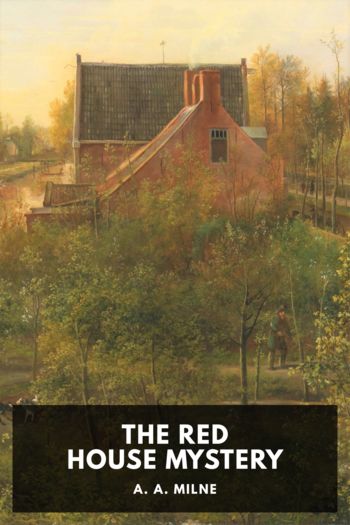Short Fiction - Edgar Allan Poe (book reader for pc .TXT) 📗

- Author: Edgar Allan Poe
Book online «Short Fiction - Edgar Allan Poe (book reader for pc .TXT) 📗». Author Edgar Allan Poe
“He was at all times a dreamer dwelling in ideal realms in heaven or hell peopled with the creatures and the accidents of his brain. He walked the streets, in madness or melancholy, with lips moving in indistinct curses, or with eyes upturned in passionate prayer (never for himself, for he felt, or professed to feel, that he was already damned, but) for their happiness who at the moment were objects of his idolatry; or with his glances introverted to a heart gnawed with anguish, and with a face shrouded in gloom, he would brave the wildest storms, and all night, with drenched garments and arms beating the winds and rains, would speak as if the spirits that at such times only could be evoked by him from the Aidenn, close by whose portals his disturbed soul sought to forget the ills to which his constitution subjected him—close by the Aidenn where were those he loved—the Aidenn which he might never see, but in fitful glimpses, as its gates opened to receive the less fiery and more happy natures whose destiny to sin did not involve the doom of death.
“He seemed, except when some fitful pursuit subjugated his will and engrossed his faculties, always to bear the memory of some controlling sorrow. The remarkable poem of ‘The Raven’ was probably much more nearly than has been supposed, even by those who were very intimate with him, a reflection and an echo of his own history. He was that bird’s
“ ‘Unhappy master whom unmerciful Disaster
Followed fast and followed faster till his songs one burden bore—
Till the dirges of his Hope that melancholy burden bore
Of ‘Never—never more.’
“Every genuine author in a greater or less degree leaves in his works, whatever their design, traces of his personal character: elements of his immortal being, in which the individual survives the person. While we read the pages of the ‘Fall of the House of Usher,’ or of ‘Mesmeric Revelations,’ we see in the solemn and stately gloom which invests one, and in the subtle metaphysical analysis of both, indications of the idiosyncrasies of what was most remarkable and peculiar in the author’s intellectual nature. But we see here only the better phases of his nature, only the symbols of his juster action, for his harsh experience had deprived him of all faith in man or woman. He had made up his mind upon the numberless complexities of the social world, and the whole system with him was an imposture. This conviction gave a direction to his shrewd and naturally unamiable character. Still, though he regarded society as composed altogether of villains, the sharpness of his intellect was not of that kind which enabled him to cope with villany, while it continually caused him by overshots to fail of the success of honesty. He was in many respects like Francis Vivian in Bulwer’s novel of The Caxtons. Passion, in him, comprehended many of the worst emotions which militate against human happiness. You could not contradict him, but you raised quick choler; you could not speak of wealth, but his cheek paled with gnawing envy. The astonishing natural advantages of this poor boy—his beauty, his readiness, the daring spirit that breathed around him like a fiery atmosphere—had raised his constitutional self-confidence into an arrogance that turned his very claims to admiration into prejudices against him. Irascible, envious—bad enough, but not the worst, for these salient angles were all varnished over with a cold, repellant cynicism, his passions vented themselves in sneers. There seemed to him no moral susceptibility; and, what was more remarkable in a proud nature, little or nothing of the true point of honor. He had, to a morbid excess, that, desire to rise which is vulgarly called ambition, but no wish for the esteem or the love of his species; only the hard wish to succeed—not shine, not serve—succeed, that he might have the right to despise a world which galled his self-conceit.
“We have suggested the influence of his aims and vicissitudes upon his literature. It was more conspicuous in his later than in his earlier writings. Nearly all that he wrote in the last two or three years—including much of his best poetry—was in some sense biographical; in draperies of his imagination, those who had taken the trouble to trace his steps, could perceive, but slightly concealed, the figure of himself.”
Apropos of the disparaging portion of the above well-written sketch, let us truthfully say:
Some four or five years since, when editing a daily paper in this city, Mr. Poe was employed by us, for several months, as critic and subeditor. This was our first personal acquaintance with him. He resided with his wife and mother at Fordham, a few miles out of town, but was at his desk in the office, from nine in the morning till the evening paper went to press. With the highest admiration for his genius, and a willingness to let it atone for more than ordinary irregularity, we were led by common report to expect a very capricious attention to his duties, and occasionally a scene of violence and difficulty. Time went on, however, and he was invariably punctual and industrious. With his pale, beautiful, and intellectual face,





Comments (0)